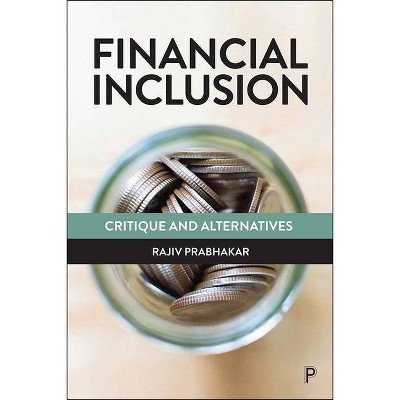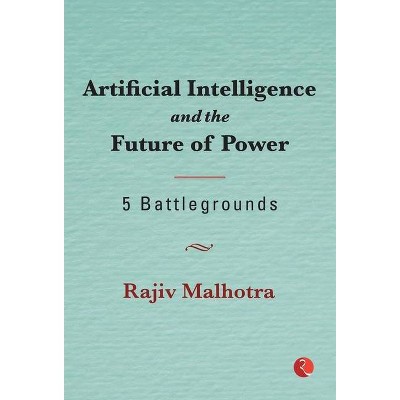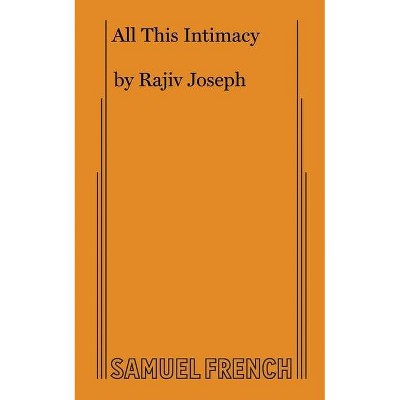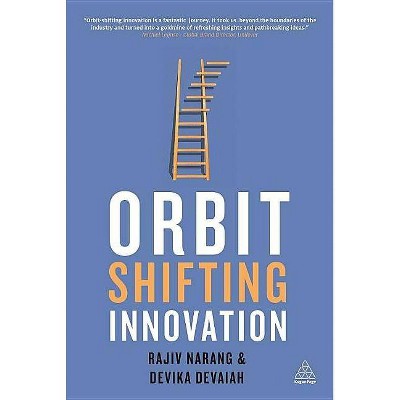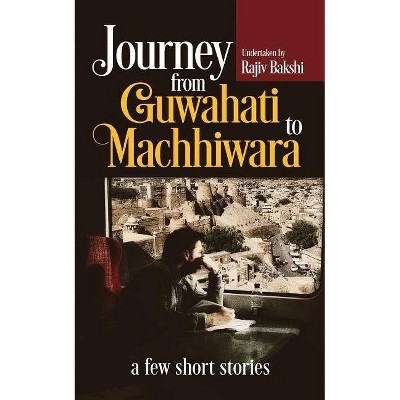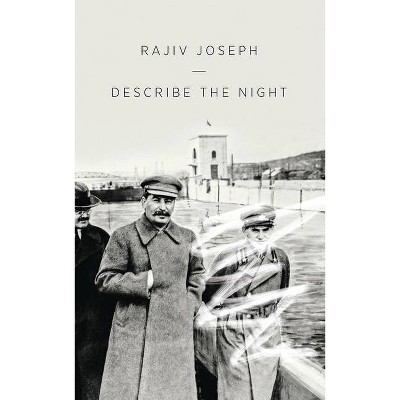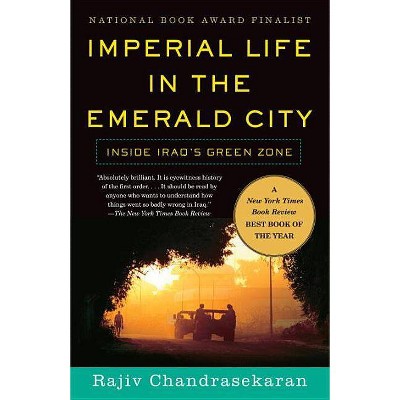Antiman - by Rajiv Mohabir (Hardcover)
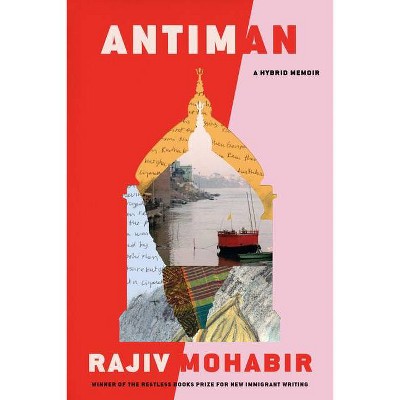
Similar Products
Products of same category from the store
AllProduct info
<p/><br></br><p><b> About the Book </b></p></br></br><p>"The pieces of Mohabir's queerness that he layers together come to speak a transgressive language all of their own. In doing so, he simultaneously defies mainstream tropes and representations of queer masculinity in the Global North by rejecting normative identity terms such as "gay", or "out of the closet". Instead, he opts to use a term more-often-than-not positioned within the realm of the pejorative, oppressive, and violent in Guyana and the Guyanese diaspora: the Antiman.... <i>Antiman</i> offers a syllabus in critical queer Indo-Caribbean practice and pedagogy. In it, we find foundational truths about the contemporary intersections of race, sexuality, gender, and diaspora within the queer Indo-Caribbean, importantly turning us to its historical past and our negotiations with its contemporary afterlife."</p><p><b>--Ryan Persadie and Natasha Ramoutar, </b><b><i>Stabroek News</i></b></p><p/><br></br><p><b> Book Synopsis </b></p></br></br><p><b>Winner of the Restless Books Prize for New Immigrant Writing, Rajiv Mohabir's </b><i><b>Antiman</b></i><b> is an impassioned, genre-blending memoir that navigates the fraught constellations of race, sexuality, and cultural heritage that have shaped his experiences as an Indo-Guyanese queer poet and immigrant to the United States.</b></p><p>Growing up a Guyanese Indian immigrant in Central Florida, Rajiv Mohabir is fascinated by his family's abandoned Hindu history and the legacy of his ancestors, who were indentured laborers on British sugarcane plantations. In Toronto he sits at the feet of Aji, his grandmother, listening to her stories and songs in her Caribbean Bhojpuri. By now Aji's eleven children have immigrated to North America and busied themselves with ascension, Christianity, and the erasure of their heritage and Caribbean accents. But Rajiv wants to know more: where did he come from, and why does he feel so out of place?</p><p>Embarking on a journey of discovery, he lives for a year in Varanasi, on the banks of the Ganges, perfecting his Hindi and Bhojpuri and tracing the lineage of his Aji's music. Returning to Florida, the cognitive dissonance of confederate flags, Islamophobia, and his father's disapproval sends him to New York, where finds community among like-minded brown activists, work as an ESL teacher, and intoxication in the queer nightlife scene. But even in the South Asian paradise of Jackson Heights, Rajiv feels like an outsider: "Coolie" rather than Desi. And then the final hammer of estrangement falls when his cousin outs him as an "antiman"--a Caribbean slur for men who love men--and his father and aunts disown him.</p><p>But Aji has taught Rajiv resilience. Emerging from the chrysalis of his ancestral poetics into a new life, he embraces his identity as a poet and reclaims his status as an antiman--forging a new way of being entirely his own. Rapturous, inventive, and devastating in its critique of our own failures of inclusion, <i>Antiman</i> is a hybrid memoir that helps us see ourselves and relationships anew, and announces an exciting new talent in Rajiv Mohabir. </p><p/><br></br><p><b> Review Quotes </b></p></br></br><br><p>"Not quite a coming out story, <i>Antiman</i> is an illuminating 'hybrid memoir, ' a record of Mohabir's coming to terms with himself, discovering who he is, and his embrace of multiple communities and cultures." </p><p><b>--Reginald Harris, <i>The Gay and Lesbian Review</i></b></p><br><br><p>"Anyone who has struggled to belong, forced to put different pieces together to create an imperfect home in which to take refuge, will learn from Mohabir's enthralling vulnerability in <i>Antiman</i>." </p><p><b>--Babi Oloko, <i>Los Angeles Review of Books</i></b></p><br><br><p>"In his gorgeous and experimental memoir, <i>Antiman</i>, Indo-Caribbean poet Rajiv Mohabir... delves into his family's history and its tangle of stigmas to locate a powerful literary heritage and the origins of his own artistic life.... Interspersing experiments in multilingual poetry among sections of conventional memoir, <i>Antiman</i> serves as both a touching account of the author's life and a bold statement of his poetics." </p><p><b>--Theo Henderson, Shelf Awareness, Starred Review</b></p><br><br><p>"Uncovering hidden histories and languages buried in the rubble of colonialism is just one of the many wonders of <i>Antiman</i>... which, like its author, is a beautifully hybrid creation that defies convention and categorization.... Like the best memoirs, Mohabir's tells us as much about ourselves as it does about him, inviting us to turn the mirror inward and find resonances of our own lives with his.... Working in concert with its narrative, the construction of the book itself is a joy--an interweaving of languages, forms, and myths."</p><p><b>--Shankar Narayan, Raven Chronicles Press</b></p><br><br><p>"The memoir refuses genre. Instead, it invents its own radical, striking, fragmented form, which reflects Mohabir's efforts to mend himself.... His stunning original poetry flies abreast of translated Bhojpuri songs. Anti-colonial polemic enlivens prose about his quest for a place his fluid self might move within rigid lines of identity.</p><p>"<i>Antiman</i> makes its own way in American letters. Transfused with what Mohabir calls in his Author's Note, 'the queerest magic' of his Aji's songs, it's an incomparable, hybrid account of self and family that defies expectations. Singular, fierce: That's the gorgeous sound of a bird taking flight."</p><p><b>--Anita Felicelli, <i>The Washington Post</i></b></p><br><br><p>"Mohabir's act of translating his Aji's songs, their English versions rooted right next to their purest form, is a way of ensuring that his identity remains whole, not broken--an amalgamation of his ancestors' many truths." </p><p><b>--Jeevika Verma, NPR </b></p><br><br><p>"With a poet's rhythms and thrilling attunement to how to bend and play with language, Mohabir tells a rich and layered story of sexuality, family, culture, and what it is to come into your own."</p><p><b>--Nina MacLaughlin, <i>The Boston Globe</i></b></p><br><br><p>"Mohabir uses this juncture to investigate multiplicity and fusion, showing how both he and other family members demonstrate resilience through adaptation and integration, even when their respective strategies for survival put them at odds.... A nuanced account that's sensitively told, the memoir <i>Antiman</i> uses duality on multiple levels to shape its central questions and shift the ways that a story about Indian immigrant identity, history, and legacy is heard and understood."</p><p><b>--Letitia Montgomery-Rogers, Foreword Reviews, Starred Review</b></p><br><br><p>"All of Mohabir's virtuosities are on display in <i>Antiman</i>. The criss-crossing between languages and narrative structures, the blurring of linguistic and national lines, as well as the pathos Mohabir builds for one particular life raised in suburban Florida. What makes <i>Antiman</i> more than required reading for our time and age is not merely how many boundaries are intersected in Mohabir's memoir. It is his conviction to innovate in style and structure... [and] his desire to give voice to a diverse microcosm--the Indo-Guyanese community of the United States--addressing erasures on the international stage." <p/><b>--Kiran Bhat, <i>Moko Magazine</i></b></p><br><br><p>"It's striking in its play with genre, and vivid in its imagery and metaphor.... The memoir is an unusual, lyric glimpse into Mohabir's perspective, as well as a window onto a world that is severely underrepresented in English letters.... Mohabir takes a personal, confessional approach, fusing poetry and fragmented memoir together to tell the story of a sexual and political coming of age."</p><p><b>--Anita Felicelli, Electric Literature</b></p><br><br><p>"Interwoven with Bhojpuri and Creole renderings of Aji's songs and stories as well as Mohabir's own interesting poetry, this distinctive memoir explores the complex, at times heartbreaking, intersection of identities and the tumultuous process of becoming an artist. A shattering and heartfelt journey from heartache and hesitancy to confidence, self-acceptance, and joy."</p><p><b><i>--Kirkus Reviews</i></b></p><p></p><br><p/><br></br><p><b> About the Author </b></p></br></br><p><b>Rajiv Mohabir</b> is the author of <i>The Cowherd's Son </i>(2017, winner of the 2015 Kundiman Prize) and <i>The Taxidermist's Cut</i> (2016, winner of the Four Way Books Intro to Poetry Prize and finalist for the Lambda Literary Award for Gay Poetry in 2017), and translator of <i>I Even Regret Night: Holi Songs of Demerara</i> (1916) (2019), which received a PEN/Heim Translation Fund Grant Award. His essays can be found in places like Asian American Writers Workshop's <i>The Margins</i>, <i>Bamboo Ridge Journal</i>, <i>Moko Magazine</i>, <i>Cherry Tree</i>, <i>Kweli</i>, and others, and he has a "Notable Essay" in <i>Best American Essays 2018</i>. Currently he is an Assistant Professor of poetry in the MFA program at Emerson College and the translations editor at Waxwing Journal.</p><p></p>
Price History
Price Archive shows prices from various stores, lets you see history and find the cheapest. There is no actual sale on the website. For all support, inquiry and suggestion messagescommunication@pricearchive.us
